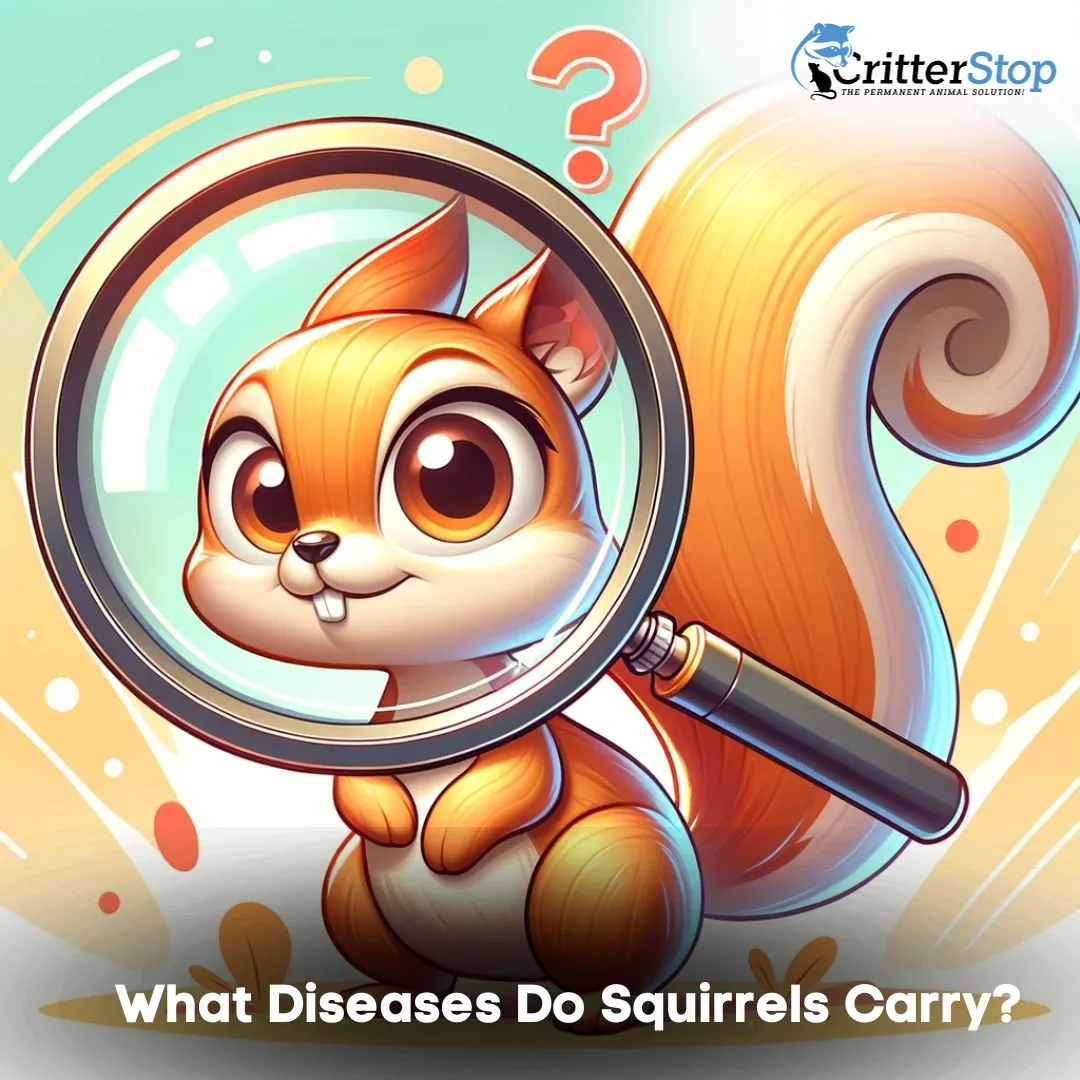
Today we will delve into the common diseases that squirrels can carry and their potential impact on human and pet health. Understanding these and other diseases is crucial for maintaining a safe coexistence with these furry creatures.
It's important to be aware of common symptoms of the squirrel diseases that squirrels can transmit due to their close proximity to humans and pets. While the likelihood of transmission is low, the ability to identify sick squirrel behavior and know common squirrel disease symptoms empowers individuals to take necessary precautions for a healthier environment.
In this article, we will try to answer the most frequent questions that our customers have asked us, for example, do squirrels carry rabies? Or is it true that squirrel with rabies exist? Continue reading to find out more about squirrels!
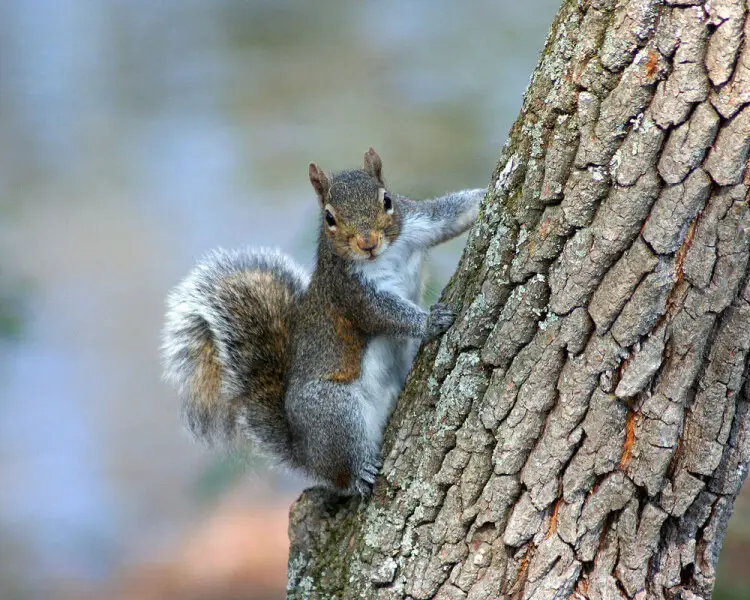
Squirrels are small to medium-sized rodents characterized by their bushy tails, sharp claws, and propensity for climbing trees. They are known for their acrobatic abilities and are commonly found in urban, suburban, and forested environments.
In our experience as squirrel removal experts, these animals often coexist with people's environments. They might come into contact with humans when seeking food, nesting materials, or shelter. Interactions with pets can occur during outdoor activities. While many interactions are harmless, it's important to be cautious due to the potential for disease transmission.
Alright, squirrel sleuths, time to talk about some of the not-so-friendly stuff these critters can carry. Do squirrels carry diseases? Transmission of diseases from squirrels is rare, but while the chances are low, it's still smart to be in the know!
Ever heard of Lyme disease? It's like a sneaky ninja that ticks pass around. When squirrels have ticks hitching a ride on them, those ticks can then latch onto humans or pets. Sneaky, right? In squirrels, Lyme disease might not show obvious symptoms, as they are reservoir hosts for infectious disease. However, infected squirrels could experience subtle changes in behavior and energy levels.
This one's a bacterial troublemaker. If squirrels are playing host to tularemia, humans could catch it from handling infected animals or even inhaling contaminated dust. It's like a bacteria party that you definitely don't want an invitation to. Squirrels with tularemia might display signs of lethargy, loss of appetite, and fever.
Now, this is one bacteria that loves to hang out in water. If squirrels do a cannonball into a pond, they might leave behind some leptospirosis. If you or your pets come in contact with squirrels past that contaminated water, you might find yourself with flu-like symptoms. In squirrels, leptospirosis could lead to fever, muscle tremors, and dehydration.
Okay, listen up: a squirrel with rabies is incredibly rare. So when we are asked “Do squirrels carry rabies?” or “Can you get rabies from a squirrel?”, the answer has to be “Yes, it is possible.” But in reality, in our experience, it is very rare. Rabies is much more common in raccoons, but squirrels could theoretically host the virus. If you are wondering how to tell if a squirrel has rabies, look for common symptoms of rabies, including abnormally aggressive behavior, disoriented motions, or paralysis.
Just like the unwelcome guests in a bad sitcom, these parasites love to crash the grey squirrels' party. Squirrels can carry ticks, fleas, and mites that might decide to hang out on your pets or even you. But don't fret! Regular grooming and tick-checks can help you dodge these freeloaders. In squirrels, infestations of these parasites could lead to excessive scratching, fur loss, and visible irritation.
Remember, pals, the goal isn't to squirrel-shame. These guys are just doing their squirrel thing. It's more about knowing the potential risks, so you can be one step ahead in the game of critter coexistence. Stay tuned for tips on how to stay safe while still enjoying your furry little neighbors!
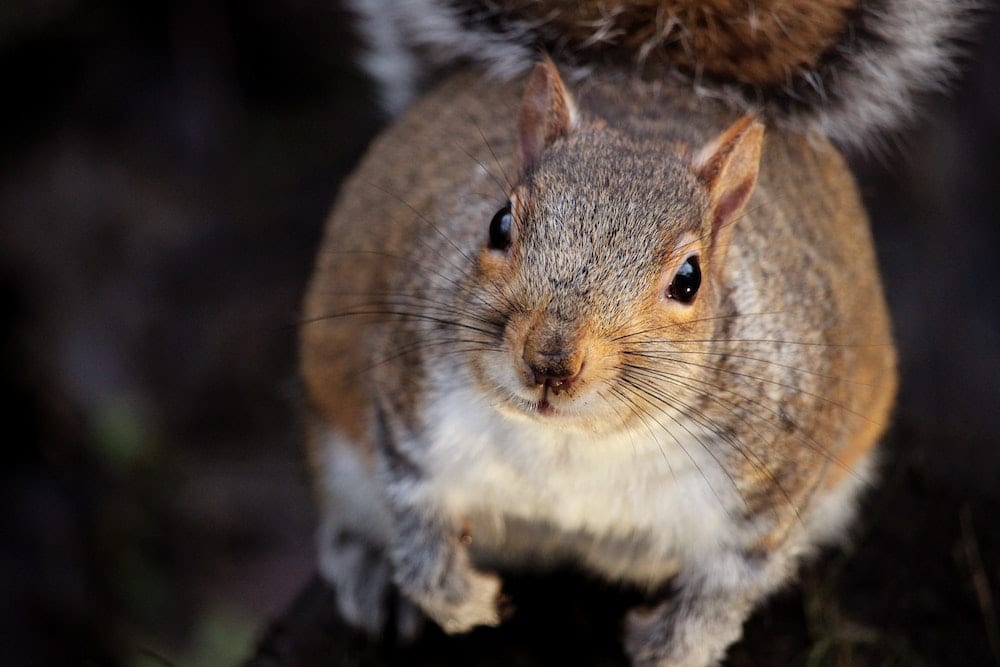
When we have provided squirrel removal services, we have found that squirrels are generally timid and non-aggressive creatures, but there can be situations where interactions with humans might lead to uncommon incidents. Understanding these scenarios and knowing how to respond is crucial for maintaining safety and coexistence.
The most common way of interaction between humans and squirrels is when this critter enters our houses. Typically do it through a window, a hole in the attic, or some untreated space in your wall. As we said before, they normally avoid human contact, but, as with any animal, squirrels leave dropping behind, creating an indirect interaction because you will not be in touch with them, but their feces and urine can affect your health and house.
Do squirrels attack humans??? Not usually… While squirrel attacks on humans are rare, they can definitely still occur in specific circumstances. Understanding the causes behind these incidents can help prevent them and ensure a better understanding of red squirrels behavior. Potential causes include:
It's important to remember that these incidents are unusual, and squirrels generally prefer to flee rather than engage in aggressive behavior, in other words, it's very unlikely that you find a dangerous squirrel in your yard. Avoiding behaviors that might provoke squirrels and respecting squirrel control of their space can significantly reduce the likelihood of attacks.
If you or someone else is bitten by a squirrel, following proper treatment and safety protocols is essential to prevent infection and other health risks, like headache, vomits, diarrhea, etc.. As experts in squirrel removal, Critter Stop has prepared a what-to-do list for this cases:
Similar to squirrel bites, squirrel scratches can also carry a risk of bacterial infection too. If you've been scratched by a squirrel, here's what you should do:
Squirrel feces and urine can spread several zoonotic pathogens harmful to humans. Leptospirosis is one such bacterial infection that may be present, potentially causing flu-like symptoms or more severe effects. Salmonellosis, resulting from the bacteria Salmonella, can also be transmitted through contact with squirrel droppings, leading to gastrointestinal illness. Additionally, parasites like raccoon roundworms, which squirrels may carry, pose a risk of neurological damage if ingested. It's important to exercise caution and maintain proper hygiene when dealing with or near squirrel waste to prevent these diseases.
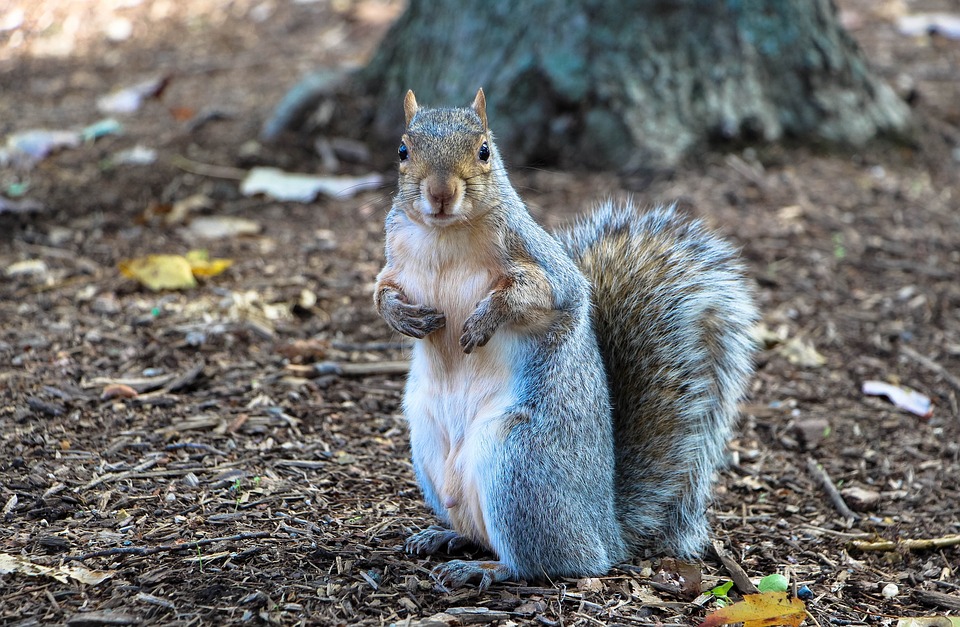
Remember, the goal is to ensure both human and animal safety while coexisting with squirrels. By following these prevention and safety measures, you can enjoy the presence of these creatures without compromising your health or the health of wild animals or your pets.
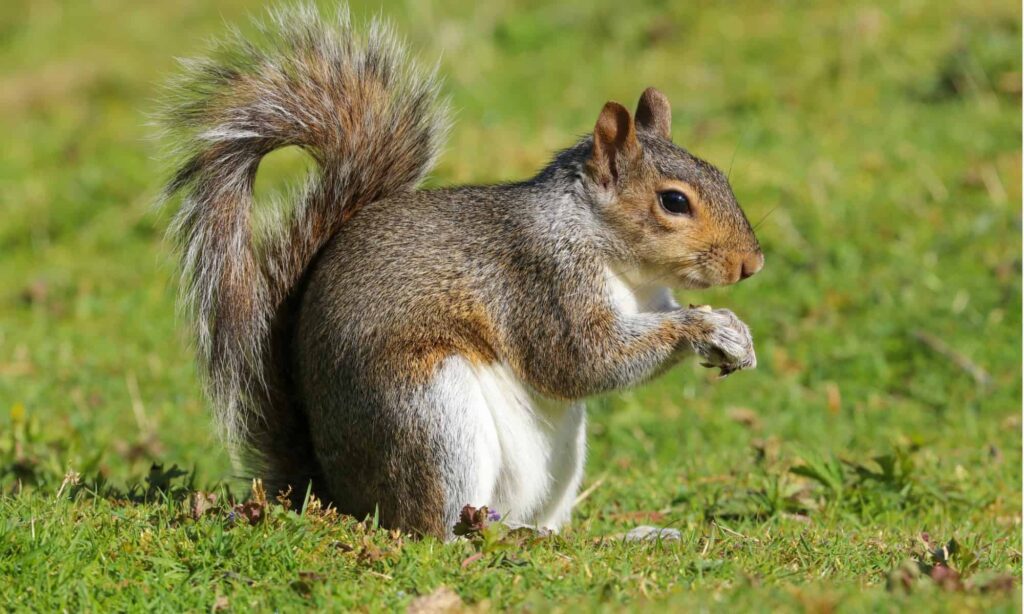
In this exploration of squirrel diseases, we've learned about the potential risks that these adorable critters can pose to human and pet health. We discussed key diseases, including Lyme disease, tularemia, leptospirosis, and the unlikely but possible risk of squirrel-related rabies. Additionally, we addressed the presence of parasites like ticks, fleas, and mites that squirrels can harbor.
It's crucial to approach interactions with squirrels and other wildlife responsibly. Being aware of the various diseases humans and squirrels can carry empowers us to take necessary precautions. By avoiding close contact, refraining from feeding and handling, and ensuring pets are properly vaccinated, we can greatly reduce the likelihood of disease transmission.
Squirrels play an important role in ecosystems and provide enjoyment to many. Responsible coexistence involves respecting their natural behaviors while minimizing potential risks. By maintaining a safe distance and following guidelines for handling injured or baby squirrels, we can contribute to a harmonious relationship with these fascinating creatures.
Remember, our furry neighbors are just living their wild animal and squirrel lives, and the goal is not to shame them but to prioritize the safety of all involved. With knowledge, awareness, and responsible actions, we can create a world where humans, pets, and wildlife thrive side by side. If you need some professional guidance with anything related to squirrels, at Critter Stop we will be waiting for your call at (214) 234-2616.
Visit our Critter Library and learn more about our furry friends